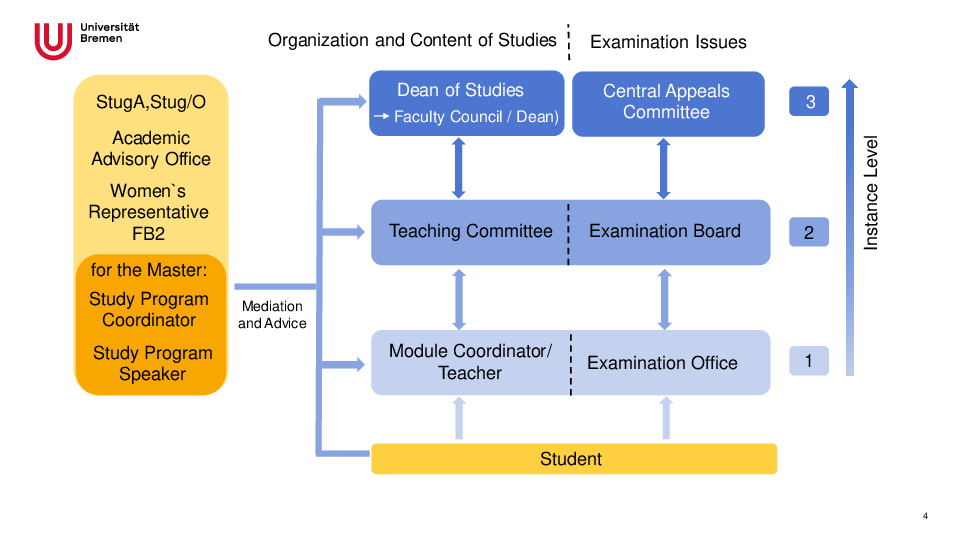Complaints Procedures for Bachelor and Master Students

Complaints Procedures for Bachelor and Master Students
Recommendations by the QM-Committee, dated February 2024, and decided upon by the Faculty Council on 10th April 2024
Basic Understanding
Department 2 Biology/Chemistry stands for constructive cooperation between teaching staff, other employees and students. Our aim is to treat each other as equals and to accept justified criticism in a solution-oriented manner. Approachability and appreciation between teachers and students is a matter of course.
If necessary, university institutions can be consulted for advice, such as the Office for Students with Disabilities or Chronic Illnesses (KIS) or the Administrative Unit Equal Opportunities ǀ Antidiscrimination (ADE).
General Information on the Procedure
- In the event of problems, students should speak directly with the teachers involved if possible. If no satisfactory solution can be found, further instances can be consulted step by step (see figure below).
- We recommend that students contact an advisory institution in advance (Academic Advisory Office, StugA/StugO, Women's Representative or possibly other advisory institutions of the University).
- Unresolved complaints can be taken to the relevant permanent committees (Examination Board, Teaching Committee), if necessary also via the student representatives or the Academic Advisory Office. The Dean of Studies can be involved as the next instance. The Faculty Council can also be involved as an instance with binding decisions.
- Complaints should be written and as specific as possible, to ensure that sufficient information is available in the event of queries. They must be answered by the department members. If there are several people involved, a joint complaint can lend more weight to the matter. Anonymous complaints are generally possible, e.g. via the student representatives or the Academic Advisory Office, but have the disadvantage that queries can only be made via representatives.
- The personal rights of the parties involved must be respected, as must the recommendations for dealing with conflicts of interest in Faculty 02.
Advisory University Institutions
- Office for Students with Disabilities or Chronic Diseases (KIS)
- Administrative Unit Equal Opportunities ǀ Antidiscrimination (ADE)
- Equal Opportunities Representatives
- Gender Equality Officer
- Legal Department
- Students' Union (AStA)
- Centre for Teacher Education and Educational Research (ZfLB)
Downloads
Recommendations for Complaints Management
File name: Complaints_Procedures_FB02_egl_FBR2.pdfLast update: 19.08.2024Dealing with Conflicts of Interest
File name: Dealing_with_Conflicts_of_Interest_FB2_FBR.pdfLast update: 06.06.2024
